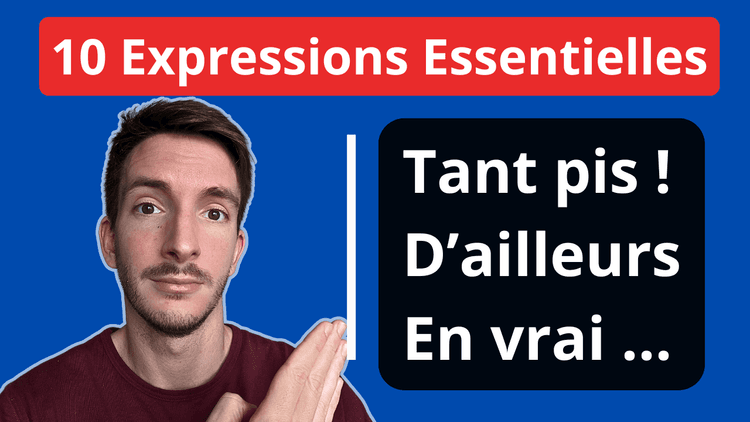
Mastering French Introduction: Essential Vocabulary Guide

Difficulty:A1
-
December 16, 2023
12/16/2023
We are going to learn a very important topic in French: how to introduce yourself. It's the first thing to know when you start learning a new language.
In this article, we will look at simple words to talk about yourself. We will learn to say your name, your age, where you are from, and what you like to do. It's easy and fun! This article is for you if you are starting out or wish to review the basics.
Key Words for Introducing Yourself in French
In this first part, we will discover the essential keywords for introducing yourself in French. Whether you are meeting new people, at a professional appointment, or simply making new friends, knowing these words will help you share basic information about yourself.
Flashcards
Shuffle
Swap faces
Loading...
Useful Expressions for Introducing Yourself
Imagine a situation: you are in a café in France, sitting next to someone who seems friendly. You want to start a conversation. But, how? In this part, we will learn some key expressions for introducing yourself and starting a discussion. These phrases will help you create connections and share information about yourself in a natural and fluid way.
Ça me saoule !
It annoys me!Alternatives: Ça m'agace - Ça m'énerve - Ça me fatigue
Il parle tout le temps, ça me saoule !

This expression is used to express annoyance or irritation.
T'inquiète !
Don't worry!Alternatives: Ne t'inquiète pas - Pas de souci - Pas de problème
T'inquiète, je m'en occupe.

A familiar expression to reassure someone and tell them not to worry.
J'ai la flemme.
I feel lazy.Alternatives: Je n'ai pas envie - Je suis trop paresseux - Je manque de motivation
J'ai la flemme de sortir ce soir.

This expression is used to say you're too lazy to do something.
C'est chaud.
It's tough.Alternatives: C'est difficile - C'est risqué - C'est tendu
Le projet doit être terminé demain, c'est chaud.

Expression used to describe a complicated or risky situation.
Vas-y !
Go ahead!Alternatives: Allez, fais-le - N'hésite pas - Essaye
Tu veux essayer ? Vas-y, je te regarde.

Expression used to encourage someone to do something or give them permission.
Carrément !
Absolutely!Alternatives: Complètement - Totalement - Absolument
Tu veux aller au cinéma ? Carrément !

Used to express total agreement or strongly confirm something.
Laisse tomber.
Forget it.Alternatives: Oublie - Ce n'est pas la peine - Ça ne vaut pas l'effort
Laisse tomber, c'est trop compliqué.

Used to say that something isn't worth it or isn't important.
Ça te dit ?
Do you fancy it?Alternatives: Est-ce que ça t'intéresse ? - Tu veux ? - Ça te tente ?
Ça te dit de prendre un café demain ?

Used to ask if someone is interested in something.
Faire gaffe.
Be careful.Alternatives: Faire attention - Prendre garde - Être prudent
Fais gaffe, la route est glissante.

A familiar expression to tell someone to be careful.
C'est n'importe quoi.
It's nonsense.Alternatives: C'est absurde - C'est ridicule - Ça n'a pas de sens
Ce qu'il raconte, c'est vraiment n'importe quoi.

Used to express disagreement or disbelief in response to something ridiculous.
Loading...
Mastering the Verbs Être, Avoir, and S'Appeler in the Present Tense
In this part, we will focus on three very important French verbs: être (to be), avoir (to have) and s'appeler (to be called). Knowing how to conjugate them in the present tense is essential for introducing yourself and talking about yourself. We will see how these verbs are used in simple sentences to say who you are, what you have, and what you are called.
Conjugation of the Verb Être in the Present Tense
The verb être is used to talk about who you are, as in "Je suis étudiant" or "Il est médecin". Here is its conjugation:

Je suis, tu es, il/elle/on est, nous sommes, vous êtes, ils/elles sont
Conjugation of the Verb Avoir in the Present Tense
The verb avoir is used to talk about what you have, as in "J'ai un chat" or "Elle a 26 ans". Here is its conjugation:

J'ai, tu as, il/elle/on a, nous avons, vous avez, ils/elles ont
Conjugation of the Verb S'Appeler in the Present Tense
The verb s'appeler is used to say what your name is, as in "Je m'appelle Marie" or "Il s'appelle Paul".
Specifics of the Verb S'Appeler: S'appeler is a reflexive verb. Reflexive verbs are used with a reflexive pronoun that refers to the subject. In French, this means that the verb's action is performed on the subject itself. For example, in "Je m'appelle", the "m'" indicates that the action of calling (naming) concerns the subject "Je". This structure is unique to reflexive verbs and is very common in French, especially when talking about oneself.

Je m'appelle, tu t'appelles, il/elle/on s'appelle, nous nous appelons, vous vous appelez, ils/elles s'appellent
Cultural Practices and Traditions of Introducing Oneself in France

In this section, we will explore the cultural aspects of introducing oneself in France. Introducing yourself is not just about using words and expressions; it's also a matter of cultural context. Understanding how the French introduce themselves and interact during first encounters can greatly enhance your experience in France and help you create authentic connections.
Handshakes and La Bise
In France, la poignée de main (handshakes) are common in professional or formal contexts. They should be firm but brief. In more relaxed situations, especially among friends or family, the French kiss on the cheeks, known as "la bise". The number of kisses varies by region: two, three, or even four. It may be surprising, but it's a gesture of friendliness and friendship.
Tutoiement and Vouvoiement
In French, there are two forms for saying "you": "tu" (tutoiement) and "vous" (vouvoiement). The choice depends on the level of familiarity and the context. Generally, "vous" is used in a formal setting or with people you are not well acquainted with. "Tu" is reserved for friends, family, or close colleagues. It's important to feel the context to choose the right form.
Politeness Formulas
Politeness formulas are essential in France. Phrases like "Bonjour", "Merci", "S'il vous plaît", and "Enchanté" are fundamental during introductions. They show respect and courtesy. Forgetting them can be perceived as a lack of respect or education.
Loading...
In conclusion
Congratulations on learning to introduce yourself in French! You've taken a big step in improving your French language skills. Introducing yourself is the start, but there's so much more to explore and master.
If you're motivated to continue learning, we have an excellent opportunity for you. Discover our French beginner video courses available on Udemy. You will find in-depth topics like "se présenter" and many other aspects of the French language and culture.

Subscribe to our newsletter
Latest posts
Browse all posts
Subscribe to our newsletter
Stay informed and get a free video

